



The terror of earthquakes
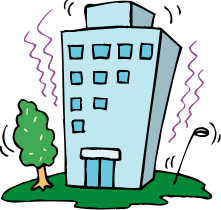
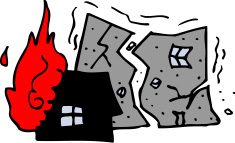
There is an interesting saying in Japanese; 'The things to fear are earthquakes,
lightning, fire and fathers.' By this you can see that earthquakes are
greatly feared. Japan is a country which has many earthquakes. It is said
that 20% of the earthquakes that occur in the world are located in Japan
and the surrounding area. I n the Kobe earthquake of 1995, 6533 people
died. The great danger is not only the destruction caused by the movement
of the ground. More than that, it is the unexpected nature of earthquakes
that result in great damage. So the best thing to do is be as prepared
as possible in order to protect yourself and your home.
1. If an earthquake occurs
| ●Hide under a table If you run outside you might be hit with falling bricks or glass and it can be more dangerous. 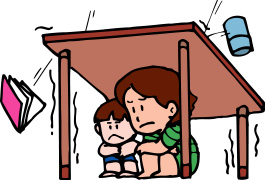 |
| ●Turn off the gas after the shaking stops During the Kobe earthquake they learned that people were seriously burned trying to turn off the gas of the cooking stove while the ground was shaking. So if there is an earthquake, wait until the movement stops to turn off the gas. |
| ●Put out fires as soon as they start Put out a fire before it gets too big to control. You should have a fire extinguisher or a fire bucket ready for use at all times. 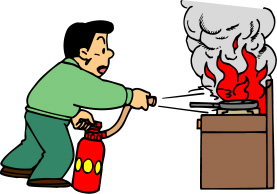 |
| ●Make sure you leave an opening for escape It is important to keep a door or window open so that you can get out. Sometimes you can get trapped with no way to escape. |
| ●Be careful before going leaving a building Check the conditions outside before evacuating. Crumbiling roofs and balconies can be dangerous. |
| ●Go to the evacuation center near you as soon as possible there are designated evacuation sites in each neighborhood, usually a school ground, so go there as soon as you can. If you wait there may be after tremors which can also be dangerous. 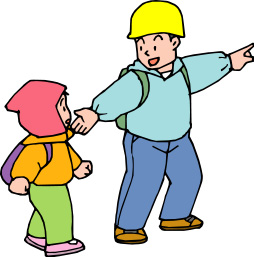 |
●When outside, stay away from narrow streets, walls, riversides and cliffs.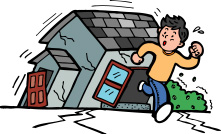 |
2. If you are outside when an earthquake occurs
| 1 | Residential area: Avoid walking near block or stone walls because they could fall. Keep away from hillsides. |
| 2 | Sea coast or hillside area: If you are by the sea or near a wall get to a safe place as soon as possible. If you are living next to a hillside use the rooms away from the hill. |
| 3 | City centers: Do not stay near tall buildings, protect your head with a handbag or other such object and go to an open area. The biggest danger is falling glass, signs, tile and other objects. Do not touch any electrical lines. |
| 4 | If driving: If you notice an earthquake while driving, slow down, pull over tothe left side of the road and stop. Wait in the car until the shaking stops. |
| 5 | In a train: The train might stop suddenly, so hold on to a strap. When the train comes to a stop, don't get off until the conductor says it is okay. |
3. How to prepare
It is important to have certain things ready in case of an earthquake
or other disaster. You can find emergency first aid and earthquake kits
sold at drug stores or other local stores.
![]() Emergency Kit
Emergency Kit![]()
| ●Valuables Cash, bank book, insurance card, driver's license, credit cards, ten yen coins and telephone cards |
| ●Radio,etc. Mobile phone, portable radio |
| ●Emergency food supplies Emergency food supplies: Crackers, dried food, food that doesn't require heating, canned goods, mineral water, thermos |
| ●First Aid Kit antiseptic, bandages, fever reducer, etc. |
| ●Flashlight and batteries |
| ●Clothing underwear, tops, towels, paper diapers |
| ●Toiletries toothbrush/toothpaste, soap, sanitary napkins, etc. |
![]() Evacuation Site
Evacuation Site![]()
Make sure you know where the evacuation site is near you. Find out where the site is. There is no English on the sign, so it might be hard to find in the confusion after an earthquake. Ask a friend to show you where it is.
![]() Try to get to know someone in your neighborhood
Try to get to know someone in your neighborhood![]()
In such an emergency you will need to depend on your neighbors for information and help. If you do not know anyone in your neighborhood, you can ask at the Matsuyama International Center. There is a volunteer organization called Otasukeman and they will introduce you to a member who lives near you.
![]() Contact Plan
Contact Plan![]()
Try to decide a way to contact friends or family. After an earthquake,
the phone lines and mobile phones are so over loaded they don't work, so
it is good to know where you can expect to find your friends.
![]() Making your home safe
Making your home safe![]()
Fasten large pieces of furniture, such as bookcases, dish cupboards and
refrigerators to the wall using L-shaped brackets.
Don't put heavy things, such as a TV, on top of furniture. Try to use fireproof carpets and curtains. You can cover your window glass with shatterproof film.


Typhoons
If a typhoon comes
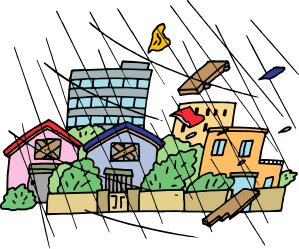
| ★Beware of roof tiles, etc. being blown off. ★Take drying clothes and clothes poles, plants and other objects off theveranda or balcony and bring them inside. ★Check to make sure there are no cracks in concrete walls. (Notify your landlord if you notice anything.) ★Make sure propane gas tanks are secure. ★Check windows for cracks. ★Check the TV antenna to make sure it is secure. ★Have a flashlight and/or candles in case of electrical failure ★If it is necessary to evacuate, use the same site as for an earthquake. *See the Earthquake section for preparing an emergency kit. 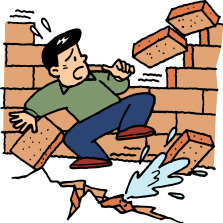 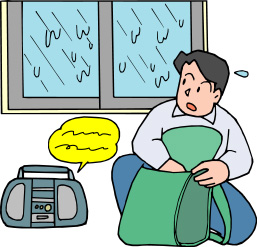 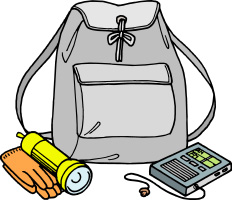 |
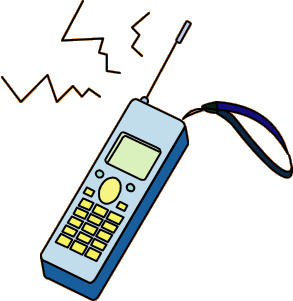 Getting Help/Reporting Trouble
Getting Help/Reporting Trouble
| Call 119 to report fires, accidents, injuries or other emergencies. Try to remain calm when making the report and talk slowly. Remember to say what kind of emergency it is and give the address and your name. For example: In case of a fire "Kaji desu. ……-shi, …….-machi, ……-chome, etc. desu. Ie ga moete imasu." (There's a fire. The address is ………-shi, …………machi, ………..chome, etc. My house is burning.) In case of injury "Kaji desu. ……-shi, …….-machi, ……-chome, etc. desu. Kyubyo desu." (There's a fire. The address is ………-shi, …………machi, ………..chome, etc. Someone is very sick/injured.) |
 Damages
Damages
| If your house was damaged by a natural disaster (heavy rain, earthquake, typhoon, etc.) then the city of Matsuyama will pay a small amount. Foreigners who are registered at the city office are also eligible for these payments. A. If your house is destroyed: 30,000 yen/household B. If your house received partial damage (half): 20,000 yen/household C. If your house was flooded: 10,000 yen/household D. If there is a death: 50,000 yen/person (Only members of the immediate family can receive this and they must have proof of the relationship.) You will need to make an official report of the damage or death at the Shimin Seikatsu Section in the Matsuyama City Office, Tel. 089-948-6814 before you can receive a payment. |
![]() Emergency Hospital
Emergency Hospital ![]()
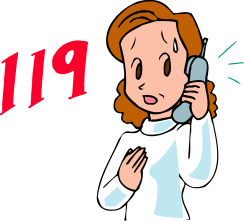
You can call 089-925-6633 and there will be a recorded message telling
which hospitals are on emergency duty at that time. The Ehime Prefecture
Hospital (Ken-byoin), Shimin Byoin (near the JR station) and Sekijuji Byoin
(Red Cross Hospital) are always open for emergencies.
If you are having trouble getting information about evacuation sites or other ways to prepare on your own, please call the Matsuyama International Center and they will help you find out what you want to know.